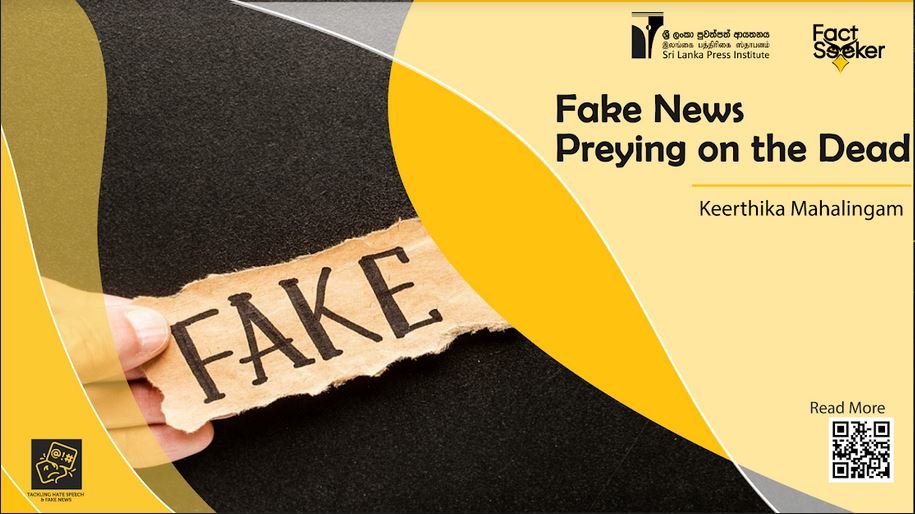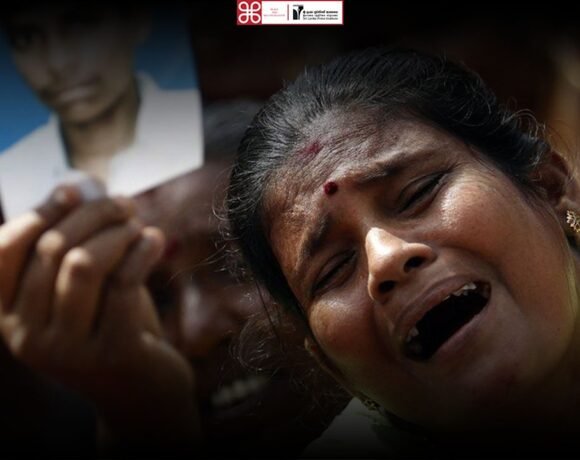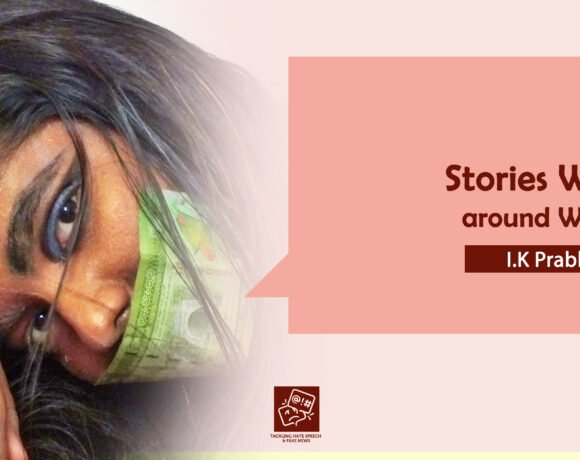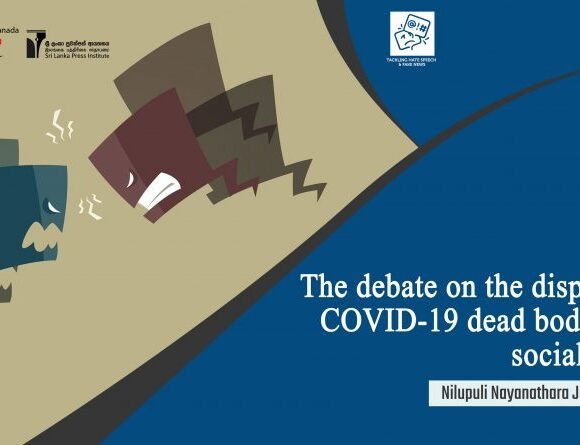
Fake News: Preying on the Dead
Keerthika Mahalingam
“Jaffna student dies in Colombo, relatives have suspicions about her death”
“Kelaniya University student dies. People suspect that Corona is the cause of death”
“Relatives suspect reasons behind Jaffna student’s death and demand an inquest”
Who is this student? What caused her death?
News in Sinhala, English and Tamil languages made headlines on October 8 and was rapidly circulated on social media. You may also have read this news and share it with your friends.
“My daughter Yadeesha was born in the Colombo District. She studied at a leading school in Wellawatte, passing the GCE (Advanced Level) examination with three A’s. She, unfortunately, passed away during her academic work at the University of Kelaniya”, cried Shridhar, the father of Yadeesha.
Sridhar is a photographer. His wife is a retired teacher. Yadeesha is their only daughter.
“Yadeesha has been interested in education since childhood. She studied hard to pass the GCE (Advanced Level) examination. However, even before the A/L results were released (in late 2018) she was diagnosed with an intestinal illness. In the early days after the diagnosis, she received treatment at a private hospital. Later, she was admitted to the Colombo General Hospital for further treatments”, stated her father.
“Despite her physical illness, she continued to pursue higher education due to her commitment and interest in education. However, she had to be hospitalized several times during this year, making it difficult for her to pursue her education. Because of the unfortunate situation prevailing in the country due to Covid virus, we informed the university administration by e-mail and telephone that she was hospitalized. . But on October 08, Yadeesha died tragically. The autopsy report clearly states that her death was not caused by Corona”, Mr Shridhar explained.
Despite these factual details, false and fabricated news of Yadeesha’s death was reported, on October 8th across social media.
“Relatives suspect that the death of the Jaffna student who was studying at a relative’s house in Colombo was due to Corona”; such news items spread on social media. It should be noted that Yadeesha’s parents and family were shocked and saddened to hear and see such false news, which only added to the grief of losing their daughter.
“I saw various false news about my daughter’s death spreading. Her death was reported in the Jaffna-based Tamil newspaper called “Kalai Kadir” and a well-known Sinhala newspaper in Colombo, and the incident has been reported on social media under different guises. We contacted the “Kalai Kadir” newspaper as soon as possible and informed them about the truth behind my daughter’s death. We also lodged a complaint with the Wellawatte Police Station. There, the police calmed us down and told us that as the autopsy report had confirmed the exact cause of her death, her funeral could be conducted religiously without any fear. The University students previously reported regarding the true cause of her death on social media in all three languages, and that urged other false news to be removed by the relevant media organizations”, Yadeesha’s father stated.
“False news creation and dissemination is something that has existed since the early days of communication technology. Expansion of power, augmentation of power and sexual gratification can be identified as the three main areas of focus of fake news circulation. Fake news creators use weak points with the public such as minimal awareness of facts and curiosity about new information for the human being”, explained Dr J. Yogarajah, professor at the University of Kelaniya.
“Sharing new knowledge in society is essential, but today it has grown not only as an essential service but also as a way to make money. The capabilities of the public change from time to time. The ability to withstand the impact of a small fake story created about an individual varies according to each other’s mental levels and social perspectives. Creating and spreading fake news can directly or indirectly cause stress. Many fake news stories aimed at an individual are made due to malicious revenge and to create sympathy for oneself on the other hand. It is difficult and urgent to crackdown false news that is created in a way that goes beyond such matters”, said Dr Yogarajah.
Yadeesha’s father’s statement confirmed that all the rumours that Yadeesha had died due to Coronavirus were untrue. Although the false news of her death has been removed by the relevant social media sources, Yadeesha’s family has not yet recovered from the mental distress caused because of this misinformation. It isn’t that easy. The family members had to go to the Wellawatte Police Station to lodge a complaint against the fake news about her daughter’s death even before the funeral, so we can understand the impact of the gravity of false information circulation.
Before a media outlet publishes a story, it should look for correct sources and report only the accurate facts and information. But unfortunately with the advent of social media, there is an atmosphere today where people believe that all the news published is true news and tend to share it. Such actions should be avoided altogether. This news item is a good example of what can happen if the news is reported without confirming sources.








